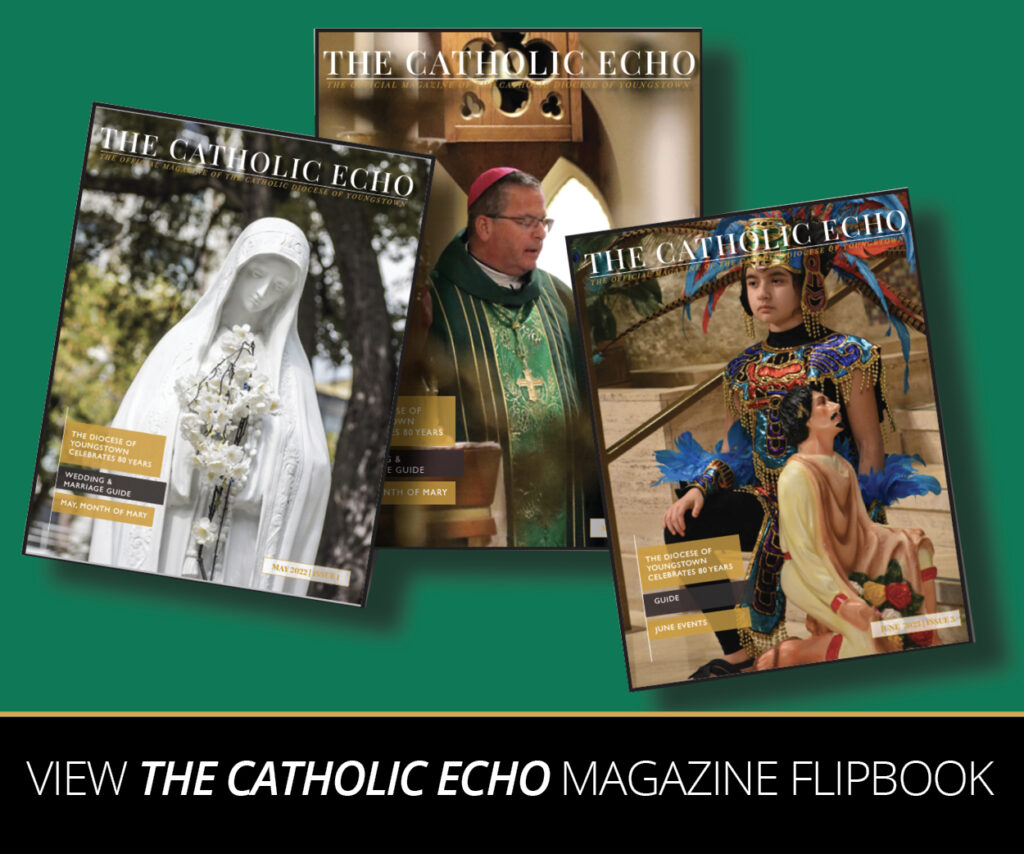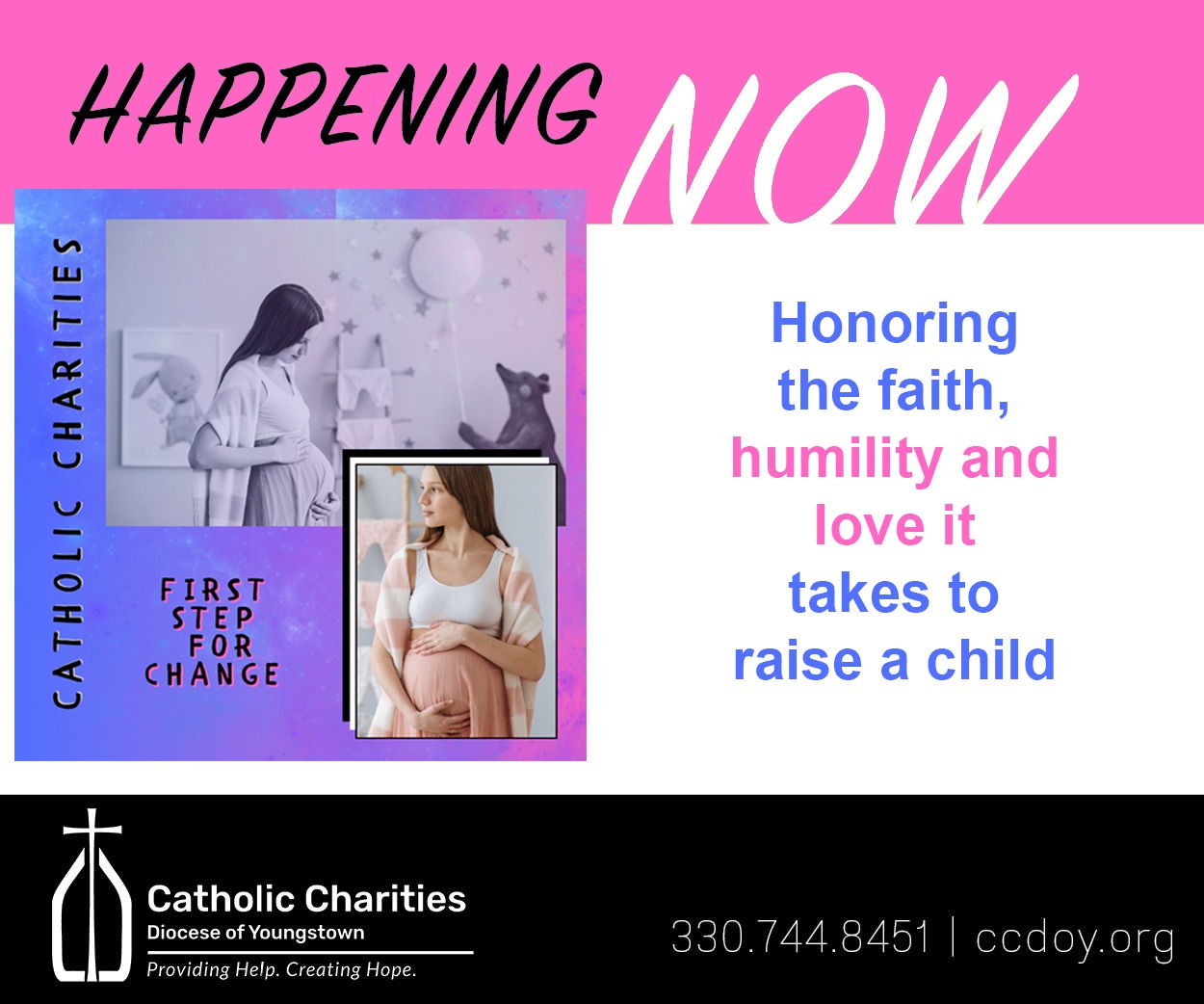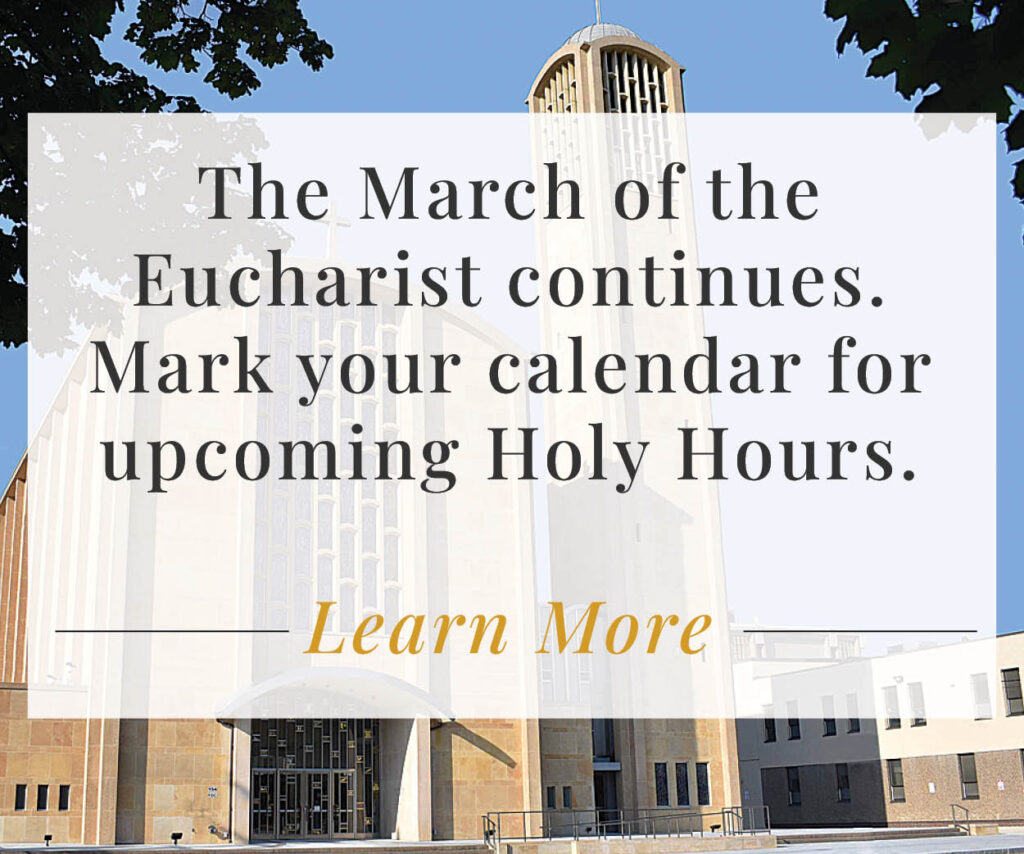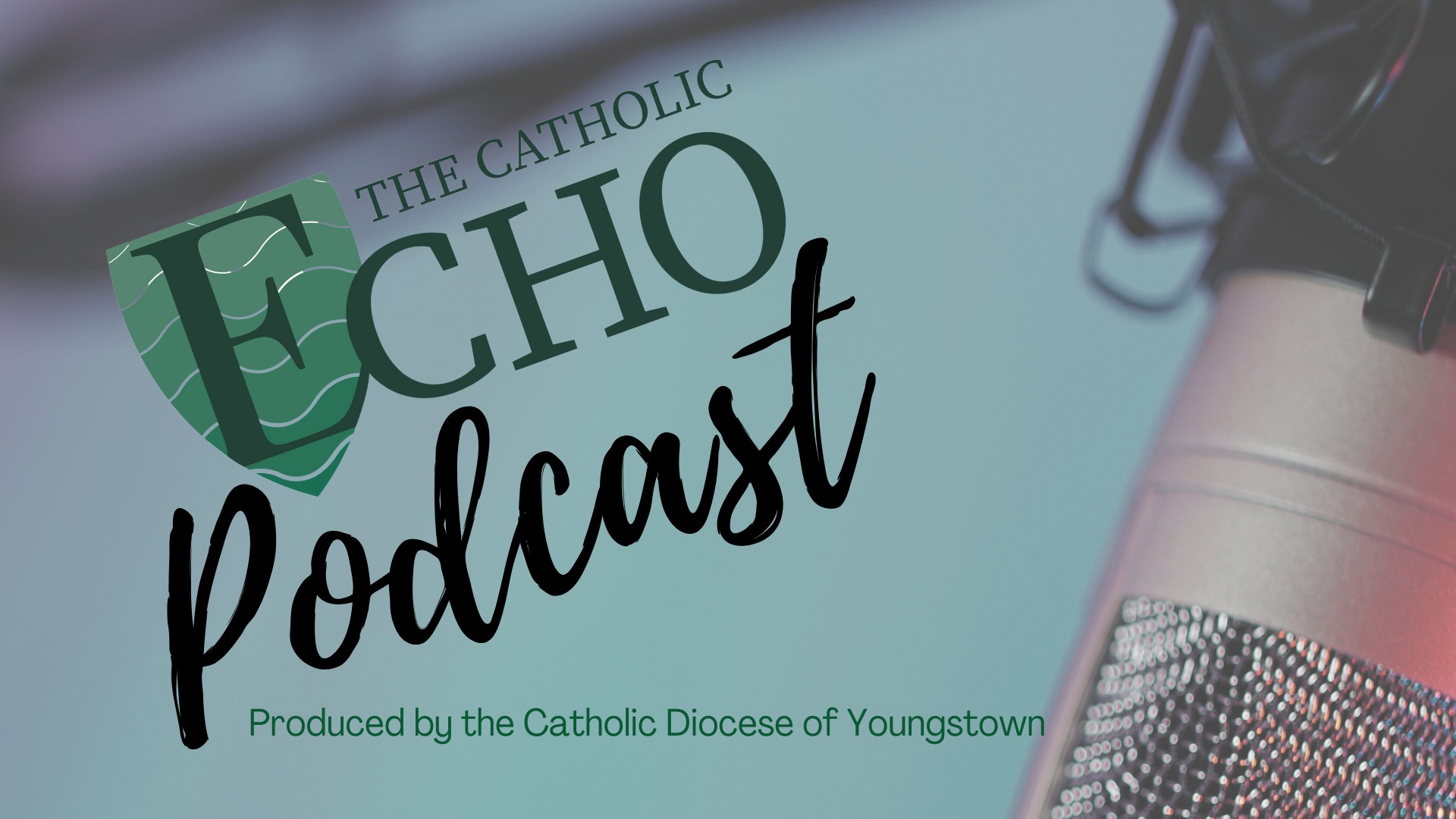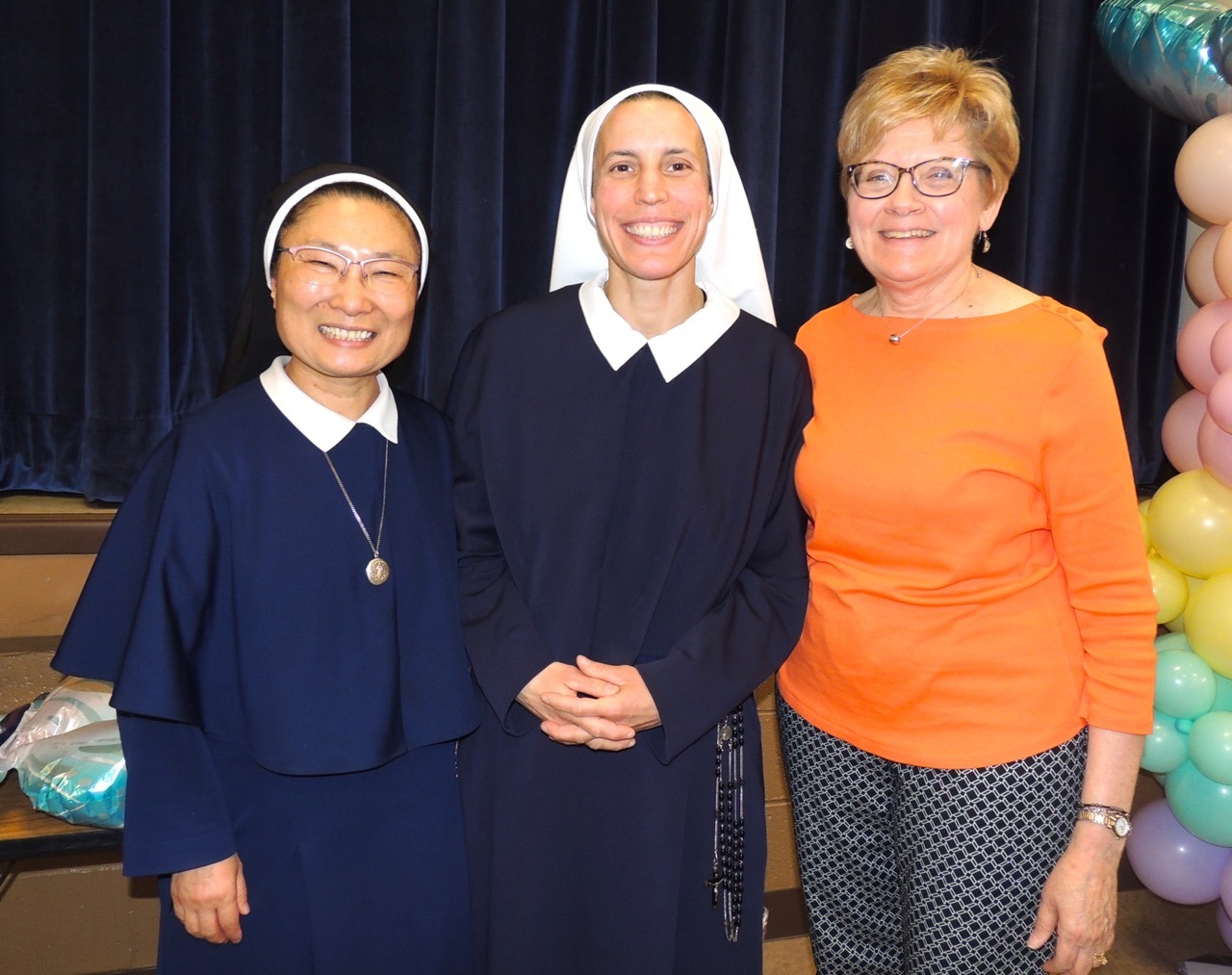It’s no secret that many young adults in today’s world—those in their 20s and 30s—are disaffiliating with the Catholic Church. Any parishioner is sure to have heard their pastor lament the dearth of youth in their pews and the subsequent need to do something, anything, about this problem. However, in framing this situation as a problem, we fail to see its root causes and the ways we can address it.
According to Dr. Tracey Lamont, a theology professor from Loyola University New Orleans who spoke at the First Friday Club of Greater Youngstown on July 6, in a presentation titled “Gen Z: Young Adult Spiritual and Human Development” the “problem-solution” framework occludes our ability to understand why young adults are disaffiliating.
“Young adults are not a problem to be solved,” Dr. Lamont said, “but beautiful gifts of our community to be nourished.”
For example, according to Dr. Lamont, a common refrain is that young adults are “morally adrift” and, as a result, we need more programming to teach them the morality we think they are lacking. Put differently, the predominant belief right now is that there is an excess of moral relativism amongst young adults, and therefore we need to teach them better morals.
Unfortunately, this is a misdiagnosis. As Dr. Lamont puts it, what is sometimes called moral relativism is actually a perfectly acceptable response for a young adult to give when questioned about morality. This moral wrestling is an essential stage in the moral development of a young adult, and should be expected.
“Young adults are not a problem to be solved, but beautiful gifts of our community to be nourished.”
– Dr. Tracey Lamont
This moral wrestling we encounter in young adults comes from their transition between stages of moral development, explained Dr. Lamont. In adolescence, young adults’ sense of morality is “affiliative,” meaning that their ideas of right and wrong come from the leaders and mentors in their lives. This “affiliative” stage is essential—this is when an individual begins to believe that morality and “right action” is a good thing to do outside of a fear of punishment. Through the development of interpersonal relationships, they are more attuned to the needs of others; prior to this stage, the individual is mostly self-focused.
The next stage of development is “self-authoring:” the individual becomes their own source of moral authority, basing their sense of right and wrong on their own experiences. Individuals at this stage are able to critique and assess the morality of their actions separately from an external source of moral authority.
It is in transitioning between these “stages of knowing” that young adults will begin to express the so-called relativism that Catholics dread—but there’s a good reason for this. In transitioning to a more advanced stage of development, young adults realize that most of their moral beliefs are indeed affiliative. They believe something is right or wrong because it was how they were raised. Furthermore, they realize that others have had the exact same experience. If morality is simply derived from authority figures, it would be pretty difficult to order them, wouldn’t it? Thus, the young adult—now increasingly aware of their own moral framework—and with a new sense of their equality to others, will often say things like: “Who am I to judge?” or “I wouldn’t do that myself, but I can see why they would.”
This is not a sign of failed moral instruction, but evidence of growth—and that’s a good thing, according to Dr. Lamont.
So, if it is not true that young adults are leaving the Church because of moral relativism, then what is actually going on? To put it simply, many young adults are not progressing to more advanced stages of moral development. Relativism is merely the superficial element of a deeper cultural reality, and that is what we must address.
“We hear it with the millennials and we’re hearing it even more with Gen Z—that there’s something problematic because they’re leaving the Church,” Dr. Lamont said. “Well, maybe what’s problematic is the way the Church is accompanying them. If we just flip the script and look internally and say, ‘maybe it was us…’, what would look differently in our parishes? How would ministry change?”
This is where Dr. Lamont believes “practical theology” comes in. Practical theology offers a different framework of evangelization from the “problem-solution” binary, shifting instead to a more inquisitive approach. In his book Practical Theology: An Outline, author Richard Osmer details the four core processes of practical theology that can help all Christians nurture the moral development of young adults (Osmer, 4):
- What is going on?
- Why is this going on?
- What ought to be going on?
- How might we respond?
To apply this directly to the question at hand, being “why are young adults leaving the church?”, we are left with something like this:
- Young adults are leaving the church.
- Young adults are failing to form an “owned” faith.
- Young adults ought to be developing an internalized sense of right and wrong.
- We ought to help foster a young adult’s sense of morality.
We can now see why a “problem-solution” framework is insufficient in dealing with this situation; in this modality, we might say “Young adults are too relativistic, so we need to teach them morality better.”
When young adults are transitioning to the “self-authoring” stage of moral development, they do not need more moral instruction—they need to be guided to dig deeper within themselves, to find answers to their own questions, and to become more self-directed.
And how might we accomplish this? Well, hard as it may be, we probably need to keep our own mouths shut more often than not, and let the young adult speak for themselves.
“My biggest takeaway today is, accompaniment is about listening—but it has to be intentional,” Dr. Lamont said. “I know there’s a lot of generational challenges, like older generations [say] ‘I don’t know how to talk to young people.’ Don’t. Listen to them. Don’t talk then, just say ‘how’s it going in your life? I really care.’”
At the risk of making this even more complicated, there is a clear reason why being listened to is such a powerful formational experience for young adults: narrative identity theory.
According to narrative identity theory, a person’s identity is the result of a self-authored story that integrates an individual’s experiences into a series of lessons, a unified sense of purpose and meaning.
While you may not have actively thought about this before, any person of faith has done this. Think of a time where you were intensely challenged, when you weren’t sure what to do and you took a leap of faith. When we reflect on this later in our lives, we will imbue it with a sense of meaning and purpose—for example, we might say that “God was at work in my life, I just couldn’t see it yet.”
When a person tells their story, they relive the lesson they learned and reinforce the meaning they derive from it. It reasserts the identity that they have formed through their experiences.
Sometimes, it’s more about you simply being there for the young adult than it is about what either person has to say; Dr. Lamont refers to this as the “ministry of presence,” and shared a powerful example of this type of ministry from scripture, in the story of the Road to Emmaus—one of the more perplexing and elusive passages from the New Testament.
“The first thing that Jesus did when he rose from the dead was listen—he didn’t break open the scriptures. He listened first,” Dr. Lamont said.
In case you were wondering, Dr. Lamont isn’t coming up with all this on her own. In her speech, she referenced Pope Francis’ Christus Vivit, his encyclical on young people, where the Holy Father focuses specifically on Jesus’ accompaniment of His disciples even when they are going in the wrong direction. In the encyclical, Pope Francis writes:
“Wanting to accompany them, [Jesus] joins them on the way. He asks them questions and listens patiently to their version of events, and in this way he helps them recognize [emphasis his] what they were experiencing. Then, with affection and power, he proclaims the word to them, leading them to interpret the events they had experienced in the light of the Scriptures.”
In other words, Jesus listens before he speaks. Perhaps in doing so, Jesus was better equipped to give the disciples what they actually needed at the time, making his message all the more powerful when he does eventually speak to them.
“Jesus was going in the wrong direction with them … and he planned to go farther,” Dr. Lamont explained. “And it was because of his hospitality of listening that [the disciples] chose to turn around, it was their initiative.”
The fact that the disciples chose of their own free will to return to Jerusalem is key. By listening and accompanying His disciples, Jesus ignites their faith to level higher than it had ever been.
“[Jesus] didn’t just hit them over the head with doctrine,” Dr. Lamont said. “He got them in touch with what they believed.”
Pope Francis has placed a great deal of emphasis on synodality, which is a way of being for those in the Church whereby we “journey together as one People of God.” Journeying together does not simply mean that we move in lockstep. Rather, it means that we should remain by the side of all people—whether they are still within the Church or not—with humility and love.
To that end, Loyola New Orleans has procured a philanthropic grant from Lilly Endowment—an organization which donates funds to charitable organizations—to work with young adults and help parishes transform their ministry to be aligned with synodality.
“What we’re doing is synodal. It’s listening, it’s creating well-facilitated listening sessions,” Dr. Lamont said.
Dr. Lamont, along with other colleagues of hers from Loyola New Orleans, created listening and facilitation guides for ministry leaders and parents to teach them how to lead these “listening sessions.” Once the ministers and parents feel capable, they invite young adults from their community into their homes to share their experiences with the faith—both the highs and lows.
The results have been quite powerful.
Dr. Lamont shared some examples from just one of the listening sessions she has helped facilitate. She said that one of the first things one of the attendees told the group was “I didn’t think anybody ever cared what I thought about the faith.”
Shortly following that were questions about whether the group could continue to meet more regularly.
“So they just formed a Christian community by listening,” Dr. Lamont said with a grin. “Just pointing that out!”
But perhaps most significant of all was that the attendees asked if they could bring along their friends who had left the Church.
“Those are three of the most powerful things I have heard from one listening session with five young adults,” Dr. Lamont said. “And there were like five of those sessions with more young adults, and that was an overlapping theme: ‘we didn’t think anyone cared what we thought.’ So why be a person of faith if nobody else cares? I wouldn’t. But they also knew the reason why their friends left, and that this would have helped them come closer to their faith again.”
Dr. Lamont recommends that you come up with a “faith autobiography,” where you consider the most impactful moments of your life and how God may have been at work in those moments. We must first know ourselves if we are to be good spiritual guides, after all, and this is a perfect way to bring awareness to God’s presence in your own life—which will better equip you to do the same for others.
This ties back into the Narrative Identity Theory and the “self-authoring” stage of moral development. When we listen to these young people tell their stories, we can point out to them the ways which God was at work in their lives. This is more than just “educating” someone—they are moving with their own inspiration, and we are just walking with them in accompaniment, helping to a shine a light wherever it’s needed.
Ultimately, we need to focus less on statistics and more on being active mentors within our own parish communities. Young adults are incredibly lonely. In fact, it has recently been listed as a public health epidemic by the surgeon general. Isolation is perhaps the greatest thing that the young adults of the world are struggling with—so shouldn’t our ministry address this? According to Dr. Lamont, our current young adult ministry is rooted in the social conditions of a bygone era. Fewer and fewer people are socialized in the Church, and so we must change our approach to building faith communities. That’s what young adults are really searching for, after all. They can—and probably do—learn all they need to know about the philosophical beliefs of the Church online. What they can never replace is the presence, guidance and love of someone who genuinely cares for them.
“Rather than wagging our fingers at our young people, problematizing them, lets tell them they’re loved, and we miss them,” Dr. Lamont said to conclude her speech. “We want them to know that God loves them.”
Learn about upcoming presentations in the First Friday Club of Greater Youngstown’s 2023-2024 series. Events are held from 11:30 a.m. to 1 p.m. on the first Thursday of every month at Avion on the Water Banquet Center in Canfield.


